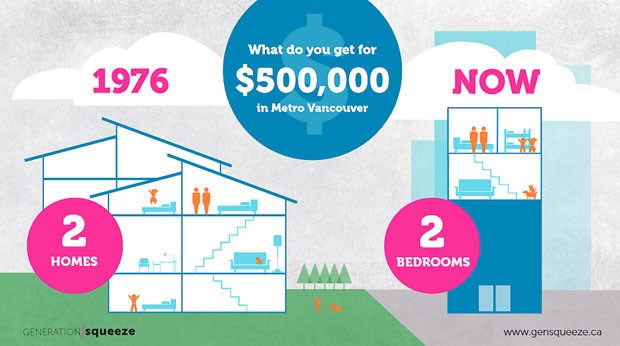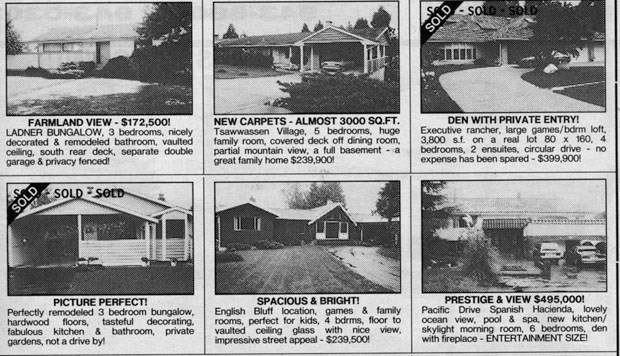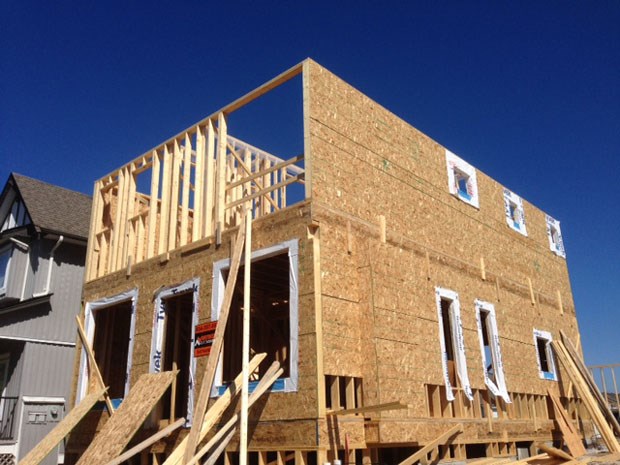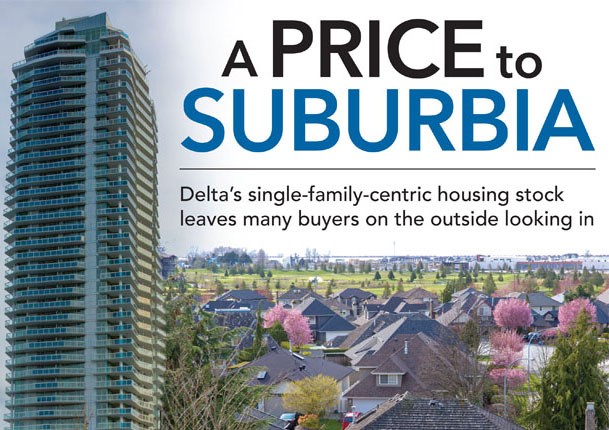They got their slice of paradise while they still could -but others won't be as lucky.
Leping Tao was among a growing number of Lower Mainland residents taking advantage of the region's red hot real estate market last year, jumping on the chance to sell suddenly super pricey houses in Vancouver and Richmond to buy south of the river in places like Ladner and Tsawwassen.
Although South Delta prices also increased sharply in the buying frenzy, with the average single-family house in both communities topping the $1-million mark, prices here didn't reach the sticker shock levels of northern neighbours.
Tao, along with his wife and family, moved to a single-family house in sunny Tsawwassen after selling a house on the west side of Vancouver. He said he had a rather nice windfall that enabled him to also buy another singlelevel house in Ladner he planned to rent.

"I really like it here. It's a really nice place to live and good choice. I think it's even nicer than the west side," Tao said as he placed an ad for his new rental property.
Saying the new destination mall at the Tsawwassen First Nation as well as the future bridge to replace the aging George Massey Tunnel made South Delta an even more desirable landing spot, Tao added he wanted to cash in before prices here got too high.
Last summer, the incredible rise in Lower Mainland house prices came to a screeching halt following the provincial government's introduction of a tax on foreign buyers in Greater Vancouver. At the time, Premier Christy Clark defended the new tax, saying there's a real affordability crisis, particularly in the Lower Mainland.
It resulted in steady monthly declines in house prices throughout the region, including South Delta. However, the damage appears to have been done as today's prices have left a lot of would-be home buyers on the sidelines.
A community profile report released by the United Way earlier this year found Delta is rather unique when it comes to its housing mix, which has exacerbated the affordability issue.
The report stated: "Delta's housing type is quite different than the comparison municipalities, with a much higher proportion of single detached houses, and a smaller proportion of high rise living. None of the comparison municipalities had such high proportions of single detached houses... The Metro Vancouver proportion of apartments in buildings over five storeys is 15 per cent compared to Delta's rate of one per cent."
Also released this year was a comprehensive social profile of the municipality, a report compiled by Delta's social planner that found there's little undeveloped land available in Delta's three residential communities.
The report noted a major challenge in future years will be to adapt the existing housing stock to an ever-changing population and to sensitively incorporate new housing into existing neighbourhoods.
The report notes that most of Delta's housing stock was constructed during the 1970s, so opportunities exist to update or replace units to better meet today's demands.
Delta's population is projected to grow to 121,000 by 2041, necessitating a further 8,300 housing units. This does not take into consideration the changing needs of a population that wishes to age in place and will require alternate forms of housing.

A community forum at Ladner's Cedar Park Church last month was dubbed Delta's Housing Affordability Crisis.
Guest speakers talked about demographics and what led to the affordability crisis, including market forces, as well as a hollowing out of the community because young people can't afford to live in Delta. They also touched on how seniors are being affected.
Hans Krueger, an epidemiologist and health economist consultant, discussed shelter costs, noting that while wages have increased over the past decade or so, more than the rate of inflation, the annual expenditure on shelter has outstripped both.
As far as housing costs in Delta, a condominium in Ladner in 2006 cost just over $250,000 on average and if prices increased at the rate of inflation, that condo would be about $300,000 today. Instead, it's closer to $400,000. The gap for townhomes is even higher at $188,000, while the gap for houses is close to $400,000.

When it comes to impacts on the community, Krueger showed what he called a "Population Pyramid" for Delta, which displayed the proportion of the municipality's population within a given age range. He noted it showed people in the 25 to 40 range have been leaving Delta over the past 20 years.
As far as the argument that the population is aging and similar declines in young people can be found elsewhere, Krueger said the B.C. average for that age range has been relatively stable while it has sharply declined in Delta. The community forum also showed a video by Generation Squeeze, a national initiative started in 2011 in Vancouver to draw attention to growing pressures faced by Canadians in their 20s, 30s and 40s.
A report last year by Generation Squeeze, called Code Red: Why We Need to Rethink Canadian Housing Policy for Generations, found the average price of a Canadian home has nearly doubled from $199,182 from the 1976 to 1980 period to $408,068 in 2014. In Metro Vancouver, the price more than quadrupled to $813,000.
According to the report, between 1976 and 1980, it took six years of full-time work for a 25-to 34-year-old to save for a 20 per cent down payment. By 2006 to 2010, the time required to save the 20 per cent down payment reached 20 years. In the five years since, that figure increased to 23 years.
The report also notes only one per cent or less of the housing stock in several municipalities in Metro Vancouver costs less than $500,000 and has three or more bedrooms. Only 10 per cent of homes in the region are priced lower than $500,000 and have 1,500-plus square feet of space, while only 17 per cent of Metro Vancouver homes are priced below $500,000 that provide access to yards.
However, Delta is one of seven communities in the region that has at least 25 of per cent of its housing market valued at less than $500,000 and also provides three or more bedrooms, as well as ground level access to a potential yard. On the flip side, the report notes, commuting costs are considerably higher for residents in those seven jurisdictions. As far as what can be done, creative solutions were discussed at the housing forum in Ladner, including financing options for people buying a home together and adding rental space as well as other options such as housing co-ops.
Event organizer Anna Krueger said it's clear there are people in that 20 to 40 range that are no longer in Delta, which is upsetting for many.
"The thing that sparked this forum was a letter in the Delta Optimist last year from a mother saying their family is so sad because they are not able to buy in Ladner. They had a house in Richmond, sold it and came out here and waited for prices to go down but they waited too long. She said their grandparents, uncles, parents all lived here but they were going to have to leave the community," she said.
Delta adopted the recommendations of its housing task force six years ago, which included legalizing secondary suites and encouraging subdivisions on larger lots.
The new Delta Rise condo tower in North Delta and recently approved high density developments along 72nd and 84th avenues will bring more variety, as will the future Southlands development in Tsawwassen. However, according to the Greater Vancouver Homebuilders'Association, Delta's still lacks infill, which would bring more affordable housing choices.

A recent report by the association found single-family homes occupy 92 per cent of residential-zoned land in Delta, with only 1.7 per cent of the housing stock occupied by infill housing forms.
"Delta is experiencing positive growth in single family home with suites, however only 1.7 per cent of the housing stock is comprised of homes with a suite, or duplex, triplex and quadplex housing forms essential to providing a complete housing mix," said Bob de Wit, CEO of the Greater Vancouver Homebuilders' Association. The report identifies best practices, including changing from the current project-by-project rezoning process to pre-zoning areas at the Official Community Plan stage to greatly reduce the time spent on the approval process for infill housing.
In an interview last year, Gordon Price, director of the City Program at Simon Fraser University, said Delta is experiencing the long-term effects of decisions made by previous generations when it comes to limited housing now that the land base is built out. The municipality needs to be "relatively aggressive" in providing new supply at higher density to change things, Price said.
"I think the larger question is where is Delta if you compared it to a human being. It's coming out of adolescence, it's beginning to mature, its needs are changing and doesn't want to maintain the image of what it was originally meant to be -a classic single-family bedroom suburb with road connections to the rest of the region."



